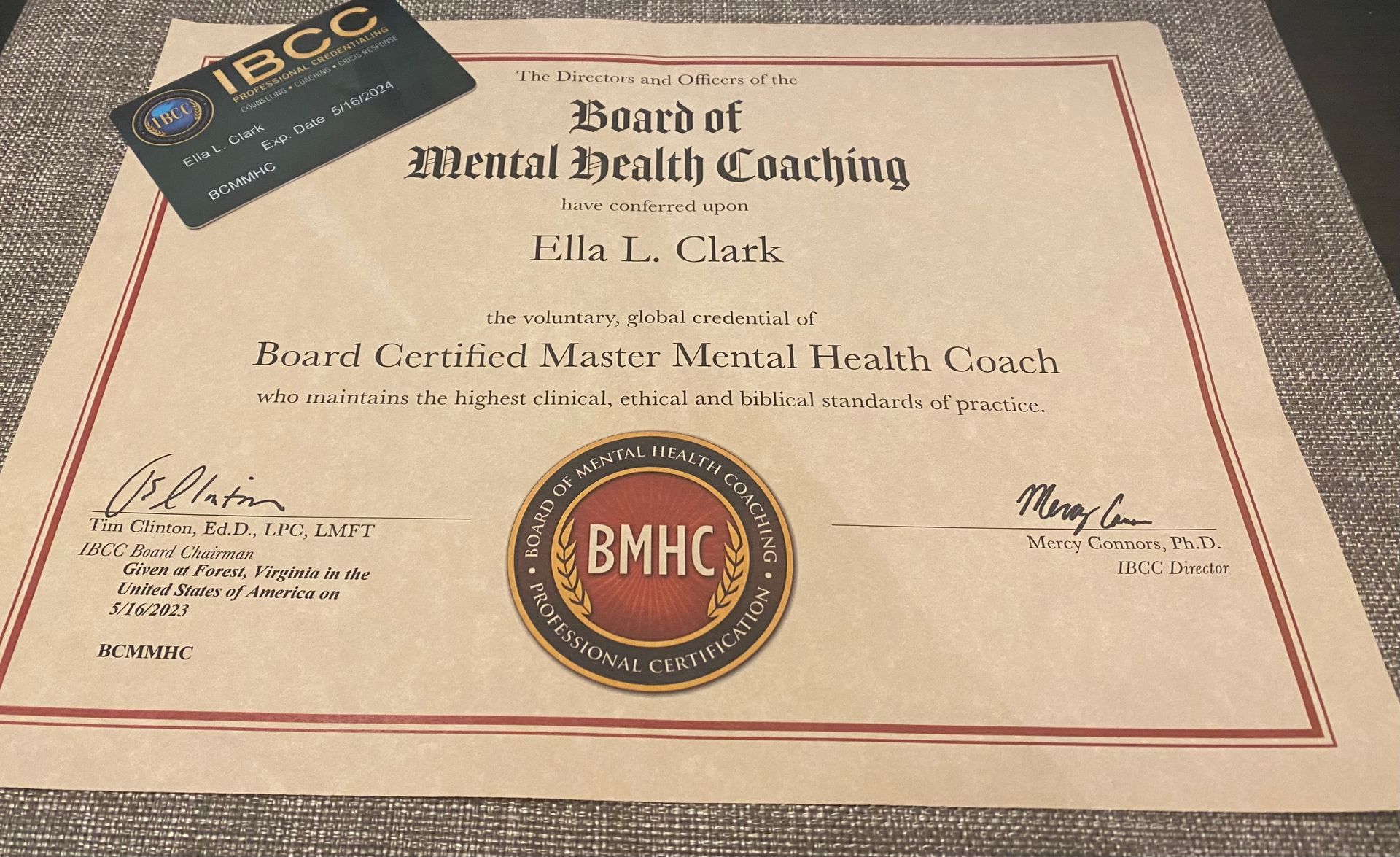Mental Health Coaching
Let's Talk Mental Health and Awareness
Mental health coaching is like having a friend you can talk to about your feelings. It's someone who can help you understand why you feel a certain way and give you advice on how to make yourself feel better. For example, if you're feeling sad or worried, the coach might suggest activities that will make you feel happier, like playing with your friends or going for a walk in nature. They can also help you learn how to manage difficult emotions in healthier ways, like talking out your worries instead of bottling them up inside. Coaching is all about supporting each other and helping each other get through tough times.
WHAT IS A MENTAL HEALTH COACH?
Mental health coaching is a form of strengths-based support for persons living with serious mental illness (e.g., bipolar disorder). Coaches help clients develop a healthy balance in life, give guidance in decision-making, offer support in navigating mental health difficulties, and assist in establishing a recovery plan. Coaches help clients find ways to obtain and maintain stability, manage difficult symptoms, rebuild relationships, and find a purpose for living. Coaches also help clients find professional care and treatment resources, family support, and education.
Mental health and wellness coaching is a powerful tool for individuals struggling with anxiety, depression, and other mental health disorders. Through targeted guidance and support, a coach can help you develop coping strategies, identify triggers for your symptoms, and build the skills necessary to manage your mental health effectively.
One of the key benefits of working with a mental health coach is that they can provide personalized support tailored to your unique needs. Whether you are dealing with a specific issue such as panic attacks or generalized anxiety disorder, or simply want to improve your overall mental well-being, a coach can help you find the resources and strategies that work best for you.
In addition to providing emotional support and practical advice, mental health coaches also play an important role in helping clients navigate complex healthcare systems. They can help you locate qualified therapists or physicians who specialize in treating your condition and advocate on your behalf throughout the treatment process.
WHAT IS THE ROLE OF A MENTAL HEALTH COACH?
Mental health coaches are unlike licensed mental health care providers in that coaches do not diagnose or offer professional care or treatment for mental health difficulties and disorders. Coaches support any positive change, helping persons in professional care to manage symptoms, build support for recovery, and work on life goals such as relationships, work, and education. Mental health coaching is action-oriented with an emphasis on improving one’s present life and reaching goals for the future.
Mental health coaches use a partnership model wherein the client is considered to be the expert on his or her life, the one who decides what is worth doing, while the coach provides expertise in supporting successful change. Mental health coaching focuses on achieving any goals important to the client, not just recovery-related goals. Mental health coaching emphasizes honoring values and making principle-based decisions, creating a clear plan of action, and using current strengths to reach future goals. The coach provides accountability to help the client stay on track.



